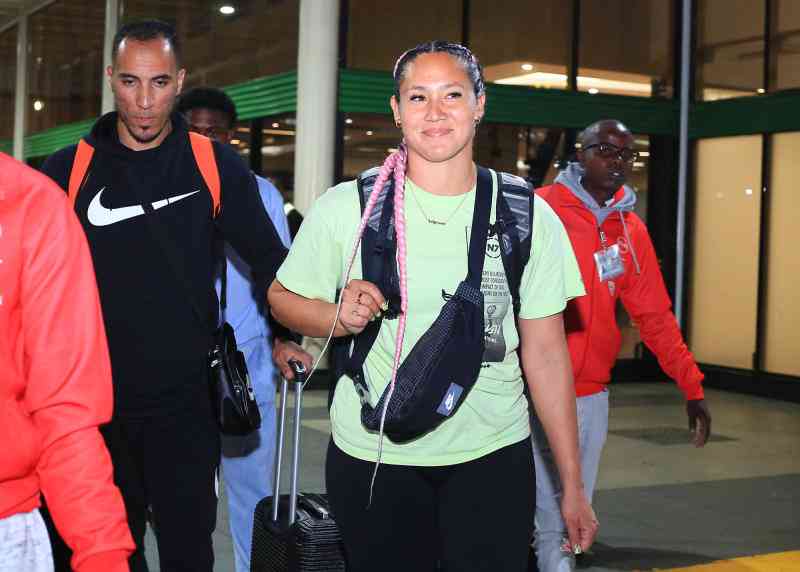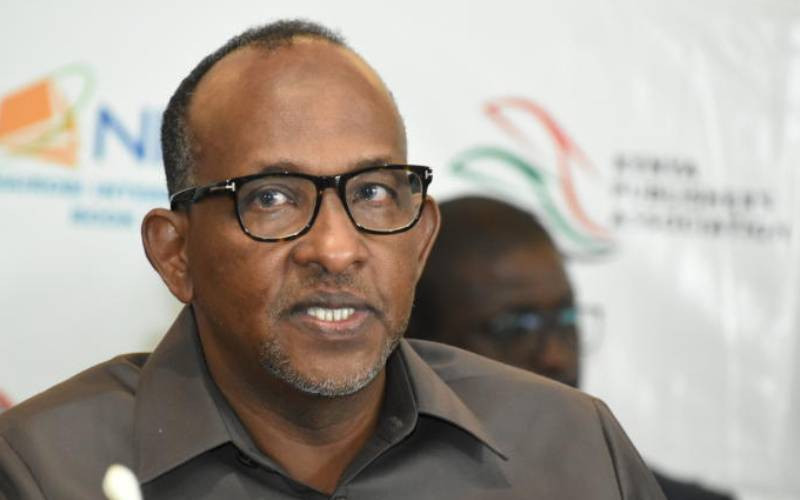 |
|
A Form One student and his parent during admission. Parents have complained of unjustified school fees hike. [PHOTO: BENJAMIN SAKWA/THE STANDARD] |
By AUGUSTINE ODUOR
The Government has suspended further school fees increment with immediate effect.
Education Cabinet Secretary Jacob Kaimenyi also suspended the annual school teachers conferences, saying the cost burdens parents.
Kenya Secondary School Heads Association (Kessha) and the Kenya Primary School Heads Association hold annual meetings in Mombasa.
The CS also suspended the motivation fees charged by various schools to rewards teachers.
Prof Kaimenyi made the announcement yesterday at his Jogoo office. He said all national schools and other secondary schools admitting Form One students must not effect any fee adjustments this year.
He said the Government would revise Form One guidelines to ascertain the cause of complaints from parents and private schools.
The announcement came after the CS met with Kepsa officials at his office in Nairobi, yesterday.
Parents have continued to complain over the hiked levies that in some cases stretch to more than Sh100,000. Early in the week, the Ministry of Education ordered an audit on fees increment in all public schools and threatened to punish school heads who have not followed the correct procedure in revising fees.
Education PS Bellio Kipsang said teachers who flout the procedures would be struck off the ministry agency list and the Teachers Service Commission (TSC) would be instructed to take disciplinary action.
He said the audit would date back to cover the last one year, but added that the assessment might be extended further back if investigations show the need to do so.
The PS also banned any school fees increment discussions during their Annual General Meetings (AGM). He said some schools had taken advantage of parents’ vulnerability to hike fees and warned that the ministry had set up a taskforce to look into the matter.
“The 2008 guidelines are clear and provide for schools fees to include tuition and the other kitty to include other levies,” he said, adding that the ministry must approve school fees increment.
Dr Kipsang said the correct procedure requires that half of the parents of the schools be in attendance during the annual AGM. “But even then, we need 80 per cent of the parents to endorse the revision,” he said.
The PS proposals from such meetings, according to the PS, should then be forwarded to the board of management, who in turn send it to the district education board. “The DEB can only authorise increment of other levies. Any increment on school fees must be authorized by the ministry”.
Stay informed. Subscribe to our newsletter
Heads unhappy
The statement comes as secondary school teachers have said increment of fees is inevitable under the prevailing circumstances. Kesha national chairman John Awiti defended school heads and said the process of raising school fees was unique to individual schools. “Every school comes with its own budget proposals that are discussed by the boards of management. The budget is then passed to parents during annual general meetings for approval,” said Awiti.
And now Awiti has banned all these discussions on fees during AGMs until further notice. He said several schools had lined up such meetings to justify their fee increments. “We want to catch and punish them,” he said.
The PS made the announcement as he appeared before the House Committee on Education, Science and Technology.
Committee chair Sabina Chege pressed the PS to declare that all students admitted to Form One must not be sent back home after paying a certain level of initial payment. “Can the ministry give the bare minimum that parents should pay for their children to be admitted,” asked Ms Chege.
Some schools are said to have threatened parents to deposit certain amounts of money to secure Form One places. The MPs said some national schools charged as high as Sh130,000, higher that university fees.
They raised concern on why some schools within the same locality charged widely varying fees. It also emerged that some schools required parents to pay whole year’s fees in two terms.
Dr Kipsang said the audit would expose the rot. The MPs said some schools had also revised fees to buy buses, which were not a priority.
 The Standard Group Plc is a
multi-media organization with investments in media platforms spanning newspaper
print operations, television, radio broadcasting, digital and online services. The
Standard Group is recognized as a leading multi-media house in Kenya with a key
influence in matters of national and international interest.
The Standard Group Plc is a
multi-media organization with investments in media platforms spanning newspaper
print operations, television, radio broadcasting, digital and online services. The
Standard Group is recognized as a leading multi-media house in Kenya with a key
influence in matters of national and international interest.
 The Standard Group Plc is a
multi-media organization with investments in media platforms spanning newspaper
print operations, television, radio broadcasting, digital and online services. The
Standard Group is recognized as a leading multi-media house in Kenya with a key
influence in matters of national and international interest.
The Standard Group Plc is a
multi-media organization with investments in media platforms spanning newspaper
print operations, television, radio broadcasting, digital and online services. The
Standard Group is recognized as a leading multi-media house in Kenya with a key
influence in matters of national and international interest.







